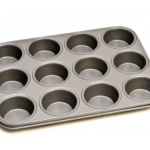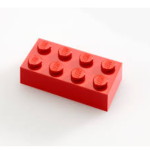24 March 2016
In addition to their Creative homework, some children also have some extra Practice Makes Perfect homework this week.
I can revise translation, reflection and using coordinates.
Children are expected to complete pages 82-85 of their maths revision books and evidence this in their homework books. They could make notes, show examples of completed questions or explain what they have learnt. Then, children should answer practice questions 9, 10 and 11 (these questions can be found on page 87. As always, we have discussed this in class so children should know what to do.
24 March 2016
This week’s Talk Time homework is due on Tuesday 29 March.
To be able to tell my Fighting Fantasy story confidently.
After lots of work in class on writing narratives, Y5 will be writing their own short story on Tuesday next week. In order to be confident with our stories and to enable us to write a well-thought-through tale, the children have brought their story plans home.
Ask them what the story is about. Question any gaps you think there might in their tale and look out for ideas that are too complicated and might sound muddled. Can they tell you their story orally, remembering key events and some details?
As always, the children are asked to write notes demonstrating what has been discussed. These notes could point out main story events, effective adjectives, verbs or phrases that they’ve used at home and don’t want to forget, or they could detail feedback they’ve had on their story from people at home.
We’ll write our stories on Tuesday so this homework is due on Tuesday 29 March, one day earlier than is usually the case.
24 March 2016
This week’s Practice Makes Perfect homework is due on Wednesday 30 March.
To be able to solve maths problems.
The children have got a selection of Maths problems to read, understand and solve in a given context. They need to think about what question they are actually answering and, sometimes, interpret correctly what remainders mean when dividing. This is work that has recently been learnt in class so they should be able to work independently.
Any working out can be completed in homework books and, for each question, a full sentence should be written to communicate their answer.
If you’re wanting to support your child in their work, check out our calculations videos to see how we do our working out in class.
18 March 2016
The homework for this week is a moral talk time and is due in on Wednesday 23 March.
Should we keep animals in zoos? Should we even keep animals as pets?
18 March 2016
This week’s homework is practice makes perfect and is due on Wednesday 23 March.
I can tell the time.
Your child will have a series of time-based tasks to do that they need to finish in the booklet provided.
We’ve started telling time to the nearest minute in class and if your child needs some extra support to do this at home, I recommend the BBC Bitesize website. I’ve also set some time tasks on Mathletics.
18 March 2016
This week’s Talk Time homework will be discussed on Wednesday 23 March.
To be able to see things from other people’s point of view.
This links to our SEAL statement for the week and is an essential skill for life. Over dinner, discuss when we might have a different opinion to somebody else; why somebody else’s opinion might be different; whether it’s OK for our opinions to differ; and what we can do to get along with each other and accept/respect our differences.
18 March 2016
The homework this week is Practice Makes Perfect and is due in on Wednesday 23 March.
I can find real life arrays.
Arrays are pictorial representations to help children understand multiplication. They are an arrangement of items in rows and columns, for example:

We have a neat arrangement of 5 rows and 3 columns. We can see here that there are 3 groups of 5, which is 3×5. This is how arrays can help children with multiplication.

At this stage, we are just focusing on identifying arrays. We have been looking for arrays around our classroom and in the playground. Here are some examples of real life arrays to get you started! When you find some, you could draw them or take a photograph to stick in your book.





18 March 2016
This week’s creative homework is due on Wednesday 23 March.
To be able to use speech punctuation.
Using the tips provided, the children need to show that they are able to punctuate speech accurately or create an activity or example that would help others to punctuate speech accurately. There are lots of ways you could do this:
- Write a story (or section of) that includes dialogue
- Create a top tips sheet that would teach someone how to use them
- Make a game that would help us to practise.
- Write a section of text with punctuation missing to be corrected (but have an answer sheet ready).
11 March 2016
The homework this week is talk time and is due in on Wednesday 16 March.
Should people eat animals or should we all be herbivores?
Recently, we have learnt about what animals eat. We learnt that some animals are carnivores (eat only meat), some are herbivores (eat only plants) and some are omnivores (eat plants and meat). We’ve been looking at food chains and know that animals need to eat to survive.
But should we, as humans, eat meat? This is a huge topic and we don’t expect you to find any answer as such, but rather enjoy the discussion and reasoning it creates. You could find information from the internet, from books or from other people. Encourage your child to seek a balance of opinions and try not to steer their opinion one way. Here are some question prompts to get your conversations started:
Why do people eat meat?
Why do people choose not to eat meat?
Is it a healthy choice?
Is it cruel to the animals?
Are there some animals we shouldn’t eat?
Which religions abstain from eating certain meats, and why?
As it is talk time homework, your child is not required to record anything in their homework books although they can if they wish. However, please remember to sign it or write a short comment so we know that your child has engaged in a discussion. Many thanks.
11 March 2016
This week’s homework is Talk Time and is due of Wednesday 16 March.
Should animals be kept in zoos?
You might want to discuss whether…
- conservation is a reason to keep them there
- animals are happy being kept in enclosed spaces
- animals deserve to have a choice over where they live
- zoos exists to make money or to make a difference
We will use your responses to these questions in our end of topic review.